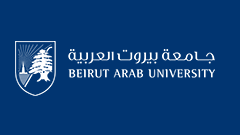Author ORCID Identifier
Sherko J. Mohammad - https://orcid.org/0000-0001-5111-9819
Alaa M. Akkof - https://orcid.org/0000-0003-3234-6279
Ahmed O. Bali - https://orcid.org/0000-0002-4458-5683
Abstract
يتميز واقع الاعلام في العراق بحالة نادرة لاتشبه مثيلاتها في المنطقة على صعيدي المهنة وامتلاك المؤسسات الاعلامية التقليدية، حيث مازالت أغلبية تلك المؤسسات مملوكة لأحزاب وشخصيات من ذوي النفوذ السياسي،لاسيما الأحزاب الحاكمة، لأن انشاء أي مؤسسة اعلامية تقليدية مرهون برأس مال كبير أولاً، وموارد بشرية ثانياً. لذلك درست هذه الورقة البحثية ديناميكيات التحول في سوق الإعلام العراقي مع التركيز على العوامل التي تساعد على مشاركة ودمج رواد الأعمال في مجال الإعلام وشركات الوسائط الرقمية التي تستهدف الجمهور على وسائل التواصل الاجتماعي. وتُعد هذه الدراسة من الدراسات الوصفية التحليلية، وقد استخدمت أسلوب المقابلة المفتوحة والمعمقة كأحد أساليب البحث الكيفي مع (19) من رواد الأعمال في مجال الإعلام وثلاثة من مديري شركات الانتاج الإعلامي.
كشفت الدراسة أن مساحة الحرية النسبية مع وجود تقنيات الاتصال المتقدمة المتاحة، شجعت رواد الأعمال في المجال الاعلامي على دفع عجلة الواقع النمطي لوسائل الإعلام التقليدي في العراق، وذلك عن طريق إنتاج المخرجات الاعلامية المبتكرة ثم بيعها وبثها عبر حساباتهم الخاصة في مواقع التواصل الاجتماعي التي أصبحت شائعة بين مستهلكي وسائل الإعلام.
Keywords
Digital Media, Freelance Journalist, Media Enterprise, Social Media, Strategic Acquisition
Recommended Citation
Mohammad, Sherko J.; Akkof, Alaa M.; and Bali, Ahmed O.
(2022)
"دور رواد مواقع التواصل الاجتماعي في تطور سوق وسائل الاعلام العراقي (دراسة تحليلية),"
BAU Journal - Society, Culture and Human Behavior: Vol. 3:
Iss.
2, Article 6.
DOI: https://doi.org/10.54729/AEWY1028

